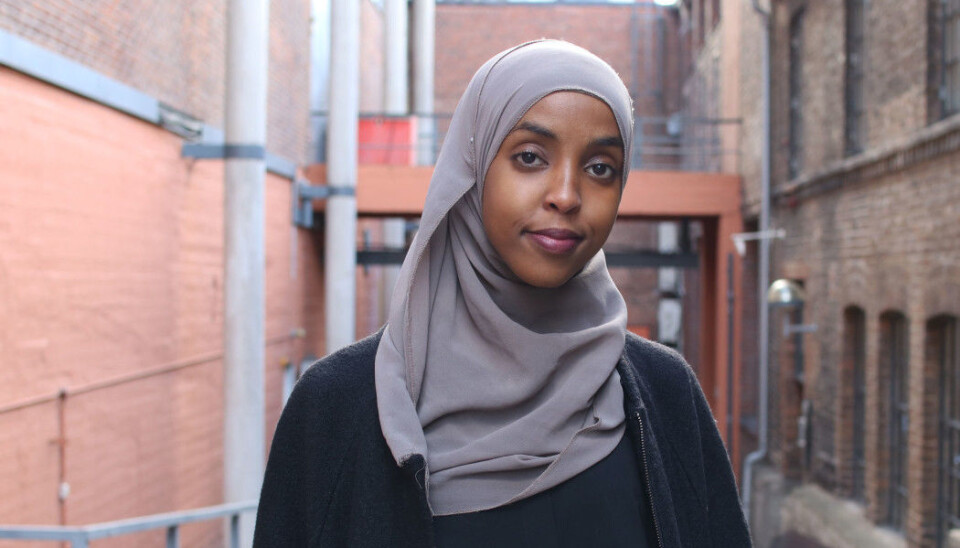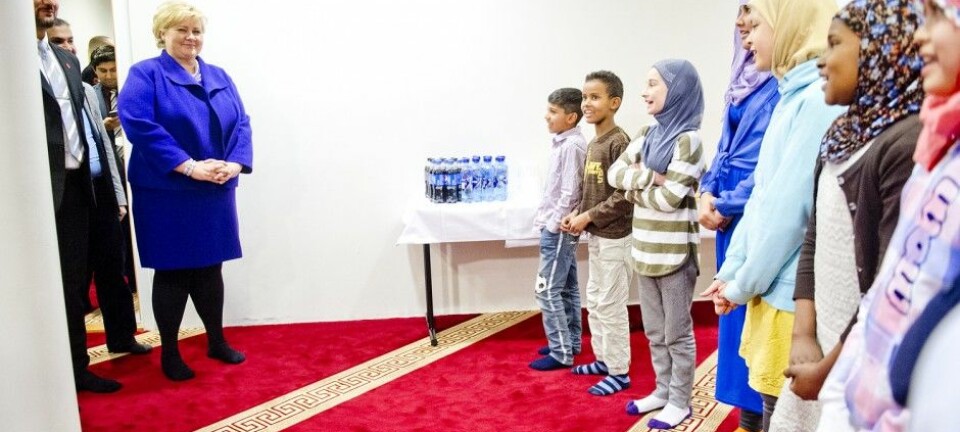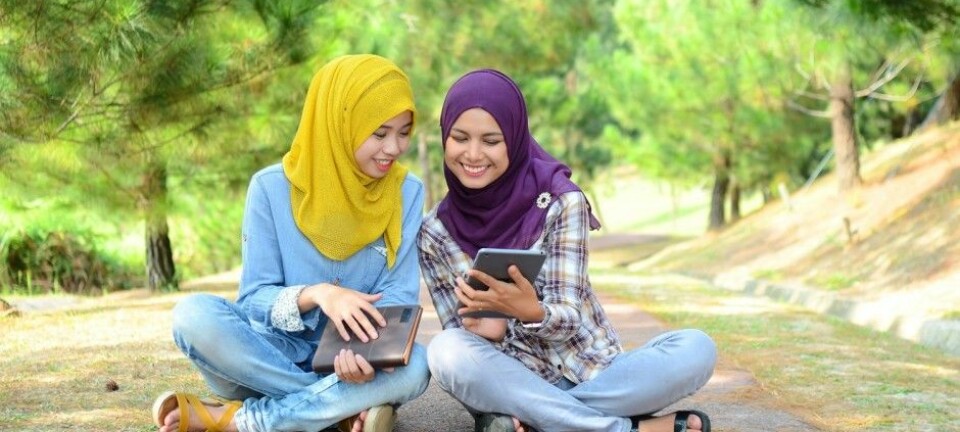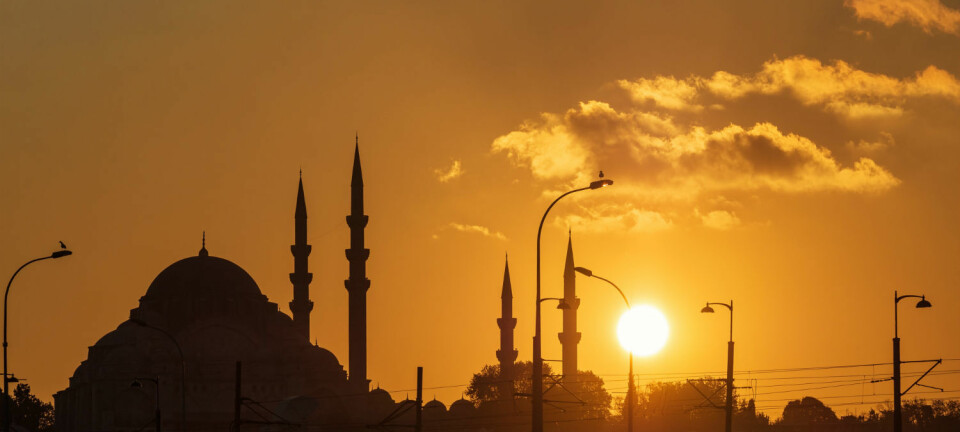
Faith is a private matter for young Norwegian Muslims
Many young Muslims in Norway take a more relaxed approach to practicing their religion, such as how often they pray each day or attend mosque.
Mina explains how she practises her faith "sort of inwardly." For her, Islam is intimate and personal, and no one else's business.
She is one of 90 Muslims between the ages of 18 and 32 interviewed by researchers at the University of Oslo, Norway, as part of the project "Radicalization and Resistance.”
Many young Norwegian Muslims do not broadcast their faith. Their confession is individual and for them, reading the Quran is flexible.
"Most participants say their religion is something private. They don't talk much about religion, and they interpret it in their own way. They want to emphasize that the interpretations are their own opinions," says Idil Abdi Abdulle Mohamed, a research assistant with the project, which is exploring faith among young Muslims in Norway and what causes them to reject jihadi rhetoric.
The project results are published in a new book Unge muslimske stemmer ("Young Muslim voices").
Twenty-seven-year-old Mohamed is a Muslim herself and a lot of what the young adults tell her rings true.
"I've never talked as much about religion as during the project. It's almost like going to Quran school again," she says with a laugh.
More relaxed about prayer and alcohol
The project participants come from all parts of Norway and the world, and have varied religious backgrounds. Most of them were born in Norway, and some came as children.
They are just normal Norwegian Muslims, and they adapt Islam to their everyday life, she says.
"Often they don't have time to attend mosque, because it conflicts with work or school," says Mohamed.
Although the ideal is to pray five times a day and attend Friday prayer in the mosque, many people are fairly relaxed about these rules.
Most of them stay away from pork and alcohol, but some drink despite the ban. Some women think they should cover their hair, and others do not.
"Do I pray five times a day? I try to. Not good enough, obviously, according to my mum. Do I fast? I actually do. For me, it's a form of self-discipline. Do I drink alcohol? Yes. Do I eat pork? No. Do I dress modestly? Yes, usually," says Khadra, an interviewee in the study.
Read More: Future features young Muslims and old Buddhists
Born-again Muslim?
"Born-again" usually describes Christians who report a newly developed ‘direct and personal’ relationship with God. Does the same principle apply to Muslims? Can a Muslim also be "born-again"?
"They're Muslims regardless of whether they attend mosque and follow the rules. That's something they'll decide. The personal ownership of religion reminds me a lot of the way my Christian friends talk about religion," says project leader Sveinung Sandberg, a professor of criminology and legal sociology at the University of Oslo.
He was surprised that the young participants were so flexible in their religious practice. Maybe they have adapted to youth culture, or perhaps Norwegian Muslims are simply more similar to non-Muslim Norwegians than many people might believe.
Read More: Justifying gender equality through Islam
Uncertain of their own opinions
In any case, Sandberg believes that religious openness can be a positive force in the face of extremist thinking.
"Extremists are absolutely sure of what they believe. They say they have the truth. But as soon as 'maybe' enters your mind, you won't go out and blow people up," he says.
"When you're open to the idea that there are several ways to understand and interpret the holy texts, the authority of extremists believing they can make decisions about life and death disappears,” says Sandberg.
Young Muslims will just as readily go to their mother as to the imam with their questions. They shop around for a mosque they like, say that they are critical of what they read online, and that they check the information they find with multiple sources.
"If they can make up their own minds instead of relying blindly on some authority, they may not be as vulnerable in the face of extremists trying to recruit them," Mohamed says.
Most of the study participants are open to interpreting Islam in many ways, and are often uncertain of their own opinions.
Read More: Gender-equality ideals make Muslim women more religious
Many are against homosexuality
At the same time, study participants are conservative and have strict rules in some areas.
For example, they do not condone sex outside of marriage or homosexuality, but they do not want to judge others. Only God can do that, they say. Sexuality is "a matter between God and you," says Melodi, another study participant.
Their attitude matches that of some Christians. They think having a gay orientation is okay, but homosexual practice is not.
"It's kind of a grey zone. If a guy is gay, it's my job to try and give him some guidance. If the guy doesn't want to hear it, that's okay. Your life is your life and my life is my life. It's not like you kill the guy because he's gay. That's totally sick," says study participant, Anton.
Read More: Gay Muslims keep religion and sexuality separate
Sharia is not on their minds
A strict interpretation of the Quran calls for state punishment of homosexuality. But several of the young people said they were uncomfortable being asked about Muslim laws, or sharia, in the interviews. They weren't used to thinking about the topic.
“Things the public are concerned about, like jihad and sharia, were not that important to our study participants," said Mohamed.
Jihad means holy war and is often linked to terrorist groups such as ISIS. Moderate Muslims often find it unfair that they are constantly being asked to distance themselves publically from extremist actions taken in the name of Islam. Although, participants were quick to do so.
"I was surprised that many participants had a friend or acquaintance who had been curious about extremist groups," says Sandberg.
Participants often ridicule radicalised Muslims. But could that push them further into extremism and defeat the purpose of the conversation?
"Absolutely. Meeting a person with condemnation can cut both ways," Sandberg says.
And does trying to reason with a radicalised person help? The researcher thinks that openness probably protects the moderates themselves from being drawn into extremism.
"But I think if they spread the understanding that there are a lot of ways to be Muslim, they can also influence their friends," says Sandberg.
Read More: Growing number of Muslim pilgrims in Europe
Friends and family can prevent radicalisation
A lot of young Muslims do not want anything to do with extremists, both out of contempt and because they are afraid to draw police attention to themselves.
The researchers also talked to people who have been part of Norwegian jihadist groups.
Sandberg relates how one young man thought about travelling to Syria, but decided not to go. He said his friends and family helped get him out of the group.
Often it is easier to see who could not be turned around.
"All of a sudden friends stop hearing anything from the radicalised person, and they see on Facebook that he or she is in Syria," says Sandberg.
Another Norwegian study, in which researchers interviewed foreign fighters, returned from Syria, suggests that social networks also play a big role in radicalisation. Strong emotions are contagious.
Read More: Lone-wolf terrorists can be tracked
Lack of authority can open the door to radicalisation
Flexibility can be a strength. But the idea that "everything is allowed" in interpreting Islam also means that everybody can have their own distorted understanding of the texts.
People can be indoctrinated through mosques. But today, radicalisation seems to have become more individualised. Traditionally, the state declared jihad. Now individuals take matters into their own hands.
"Then it becomes more difficult for traditional religious authorities to keep them in check," Sandberg says.
But Sandberg believes that lack of direction in life and religion leads some individuals to search for places that give them a clear point of reference.
"Simple answers and radical solutions can be very tempting if you're struggling to find your way in life or have a criminal background," he says.
A majority of Norwegian extremists have been involved in crime before being radicalised, according to a police security investigation.
However, several researchers say that we need to be aware that extremists can come from many different backgrounds.
-------------------------------------
Read the Norwegian version of this article at forskning.no.




































